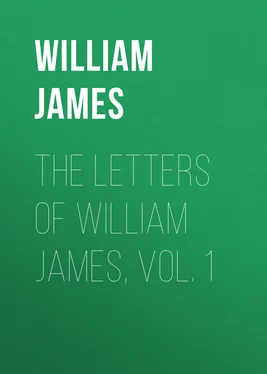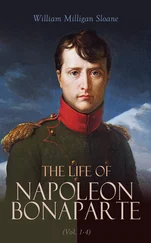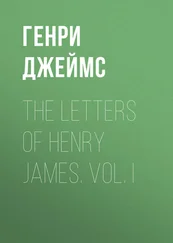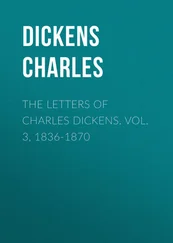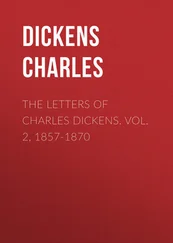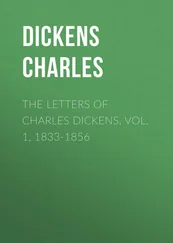William James - The Letters of William James, Vol. 1
Здесь есть возможность читать онлайн «William James - The Letters of William James, Vol. 1» — ознакомительный отрывок электронной книги совершенно бесплатно, а после прочтения отрывка купить полную версию. В некоторых случаях можно слушать аудио, скачать через торрент в формате fb2 и присутствует краткое содержание. Жанр: Биографии и Мемуары, Философия, foreign_edu, foreign_antique, на английском языке. Описание произведения, (предисловие) а так же отзывы посетителей доступны на портале библиотеки ЛибКат.
- Название:The Letters of William James, Vol. 1
- Автор:
- Жанр:
- Год:неизвестен
- ISBN:нет данных
- Рейтинг книги:5 / 5. Голосов: 1
-
Избранное:Добавить в избранное
- Отзывы:
-
Ваша оценка:
- 100
- 1
- 2
- 3
- 4
- 5
The Letters of William James, Vol. 1: краткое содержание, описание и аннотация
Предлагаем к чтению аннотацию, описание, краткое содержание или предисловие (зависит от того, что написал сам автор книги «The Letters of William James, Vol. 1»). Если вы не нашли необходимую информацию о книге — напишите в комментариях, мы постараемся отыскать её.
The Letters of William James, Vol. 1 — читать онлайн ознакомительный отрывок
Ниже представлен текст книги, разбитый по страницам. Система сохранения места последней прочитанной страницы, позволяет с удобством читать онлайн бесплатно книгу «The Letters of William James, Vol. 1», без необходимости каждый раз заново искать на чём Вы остановились. Поставьте закладку, и сможете в любой момент перейти на страницу, на которой закончили чтение.
Интервал:
Закладка:
In the same reminiscences Catherine Barber herself is described as having been "a good wife and mother, nothing else—save, to be sure, a kindly friend and neighbor" and "the most democratic person by temperament I ever knew." 3 3 If the reader were familiar, as he cannot be presumed to have been, with the elder Henry James or his writings, he would be in no danger of finding anything cold or qualifying in these words, but would discern a true adoration expressing itself in a way that was peculiarly characteristic of their writer. For Henry James, Senior, a spiritual democracy deeper than that of our political jargon was not a mere conception: it was an unquestioned reality. The outer wrappings in which people swathed their souls excited him to anger and ridicule more often than praise; but when men or women seemed to him beautiful or adorable he thought it was because they betrayed more naturally than others the inward possession of that humble "social" spirit which he wanted to think of as truly a common possession—God's equal gift to each and all. To say of his mother that that could be felt in her, that she was merely that, was his purest praise. The reader may find this habit of his thought expressing itself anew in William James by turning to a letter on page 210 below. That letter might have been written by Henry James, Senior.
She adopted the three children of her husband's prior marriages and, by their own account, treated them no differently from the five sons and three daughters whom she herself bore and brought up. She managed her husband's large house during his lifetime, and for twenty-seven years after his death kept it open as a home for children, and grandchildren, and cousins as well. This "dear gentle lady of many cares" must have been a woman of sound judgment in addition to being an embodiment of kindness and generosity in all things; for admiration as well as affection and gratitude still attend her memory after the lapse of sixty years.
The next generation, eleven in number as has already been said, 4 4 The places of two of the eleven who died early were taken by their orphaned children.
may well have given their widowed mother "many cares." It had been the purpose of the first William James to provide that his children (several of whom were under age when he died) should qualify themselves by industry and experience to enjoy the large patrimony which he expected to bequeath to them, and with that in view he left a will which was a voluminous compound of restraints and instructions. He showed thereby how great were both his confidence in his own judgment and his solicitude for the moral welfare of his descendants. But he accomplished nothing more, for the courts declared the will to be invalid; and his children became financially independent as fast as they came of age. Most of them were blessed with a liberal allowance of that combination of gayety, volubility, and waywardness which is popularly conceded to the Irish; but these qualities, which made them "charming" and "interesting" to their contemporaries, did not keep them from dissipating both respectable talents and unusual opportunities. Two of the men—William, namely, who became an eccentric but highly respected figure in the Presbyterian ministry, and Henry of whom more will be said shortly—possessed an ardor of intellect that neither disaster nor good fortune could corrupt. But on the whole the personalities and histories of that generation were such as to have impressed the boyish mind of the writer of the following letters and of his younger brother like a richly colored social kaleidoscope, dashed, as the patterns changed and disintegrated, with amusing flashes of light and occasional dark moments of tragedy. After they were all dead and gone, the memory of them certainly prompted the author of "The Wings of a Dove" when he described Minny Theale's New York forebears as "an extravagant, unregulated cluster, with free-living ancestors, handsome dead cousins, lurid uncles, beautiful vanished aunts, persons all busts and curls," to have known whom and to have belonged to whom "was to have had one's small world-space both crowded and enlarged."
It is unnecessary, however, to pause over any but one member of that generation.
Henry James, the second son of William and Catherine, was born in 1811. He was apparently a boy of unusual activity and animal spirits, but at the age of thirteen he met with an accident which maimed him for life. He was, at the time, a schoolboy at the Albany Academy, and one of his fellow students, Mr. Woolsey Rogers Hopkins, wrote the following account of what happened. (The Professor Henry referred to was Joseph Henry, later the head of the Smithsonian Institute.)
"On a summer afternoon, the older students would meet Professor Henry in the Park, in front of the Academy, where amusements and instruction would be given in balloon-flying, the motive power being heated air supplied from a tow ball saturated with spirits of turpentine. When one of these air-ships took fire, the ball would be dropt for the boys, when it was kicked here and there, a roll of fire. [One day when] young James had a sprinkling of this [turpentine] on his pantaloons, one of these balls was sent into the open window of Mrs. Gilchrist's stable. [James], thinking only of conflagration, rushed to the hayloft and stamped out the flame, but burned his leg."
The boy was confined to his bed for the next two years, and one leg was twice amputated above the knee. He was robust enough to survive this long and dire experience of the surgery of the eighteen-twenties, and to establish right relations with the world again; but thereafter he could live conveniently only in towns where smooth footways and ample facilities for transportation were to be had.
In 1830 he graduated from Union College, Schenectady, and in 1835 entered the Princeton Theological Seminary with the class of '39. By the time he had completed two years of his Seminary course, his discontent with the orthodox dispensation was no longer to be doubted. He left Princeton, and the truth seems to be that he had already conceived some measure of the antipathy to all ecclesiasticisms which he expressed with abounding scorn and irony throughout all his later years.
In 1840 he married Mary Walsh, the sister of a fellow student at Princeton, who had shared his religious doubts and had, with him, turned his back on the ministry and left the Seminary. She was the daughter of James and Mary (Robertson) Walsh of New York City, and was thus descended from Hugh Walsh, an Irishman of English extraction who came from Killingsley, 5 5 According to the Rev. Hugh Walsh of Newburgh, who has worked out the Walsh genealogy. A Small Boy and Others (page 6) says "Killyleagh."
County Down, in 1764, and settled himself finally near Newburgh, and from Alexander Robertson, a Scotchman who came to America not long before the Revolution and whose name is borne by the school of the Scotch Presbyterian Church in New York City. Mary Walsh was a gentle lady, who accommodated her life to all her husband's vagaries and presided with cheerful indulgence over the development of her five children's divergent and uncompromising personalities. She lived entirely for her husband and children, and they, joking her and teasing her and adoring her, were devoted to her in return. Several contemporaries left accounts of their impressions of her husband without saying much about her; and this was natural, for she was not self-assertive and was inevitably eclipsed by his richly interesting presence. But it is all the more unfortunate that her son Henry, who might have done justice, as no one else could, to her good sense and to the grace of her mind and character, could not bring himself to include an adequate account of her in the "Small Boy and Others." To a reader who ventured to regret the omission, he replied sadly, "Oh! my dear Boy—that memory is too sacred!" William James spoke of her very seldom after her death, but then always with a sort of tender reverence that he vouchsafed to no one else. She supplied an element of serenity and discretion to the councils of the family of which they were often in need; and it would not be a mistake to look to her in trying to account for the unusual receptivity of mind and æsthetic sensibility that marked her two elder sons.
Интервал:
Закладка:
Похожие книги на «The Letters of William James, Vol. 1»
Представляем Вашему вниманию похожие книги на «The Letters of William James, Vol. 1» списком для выбора. Мы отобрали схожую по названию и смыслу литературу в надежде предоставить читателям больше вариантов отыскать новые, интересные, ещё непрочитанные произведения.
Обсуждение, отзывы о книге «The Letters of William James, Vol. 1» и просто собственные мнения читателей. Оставьте ваши комментарии, напишите, что Вы думаете о произведении, его смысле или главных героях. Укажите что конкретно понравилось, а что нет, и почему Вы так считаете.
